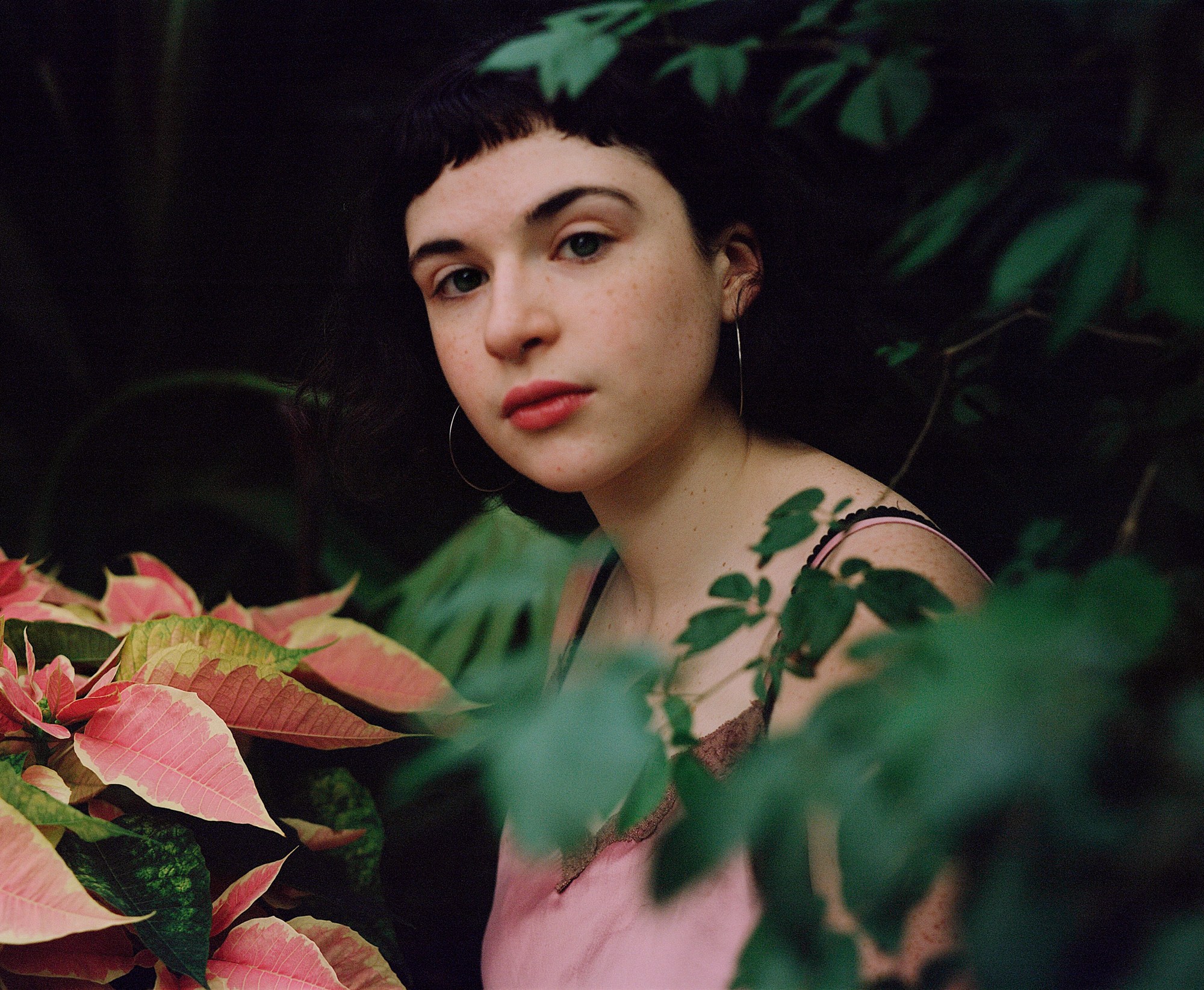Over the course of my life, being Jewish has informed my identity in so many different ways. Growing up as one of the only Jewish people in a small conservative town, I learned what it felt like to be “other.” I hated my Jewishness as a young adult simply because it made me different. In my adulthood, I embrace and cherish my Judaism. In retrospect, my Jewish upbringing gave me many of the values that make up my character. I set out to make portraits of Jewish femmes because I wanted their faces to be seen and their stories held up. In a world where neo-Nazis regularly make the news, it is important for Jewish voices to be heard. Many Jewish people, including myself, speak about or prioritize other aspects of our identities before our Judaism (which is often important and necessary), so I wanted to create a space where our Jewish-ness could come first for just a moment. Every Jewish person has a unique connection to their Judaism, one which is often complicated, and with this project, I hope to make it clear that there is no right way or wrong way to be Jewish. — Marisa Chafetz
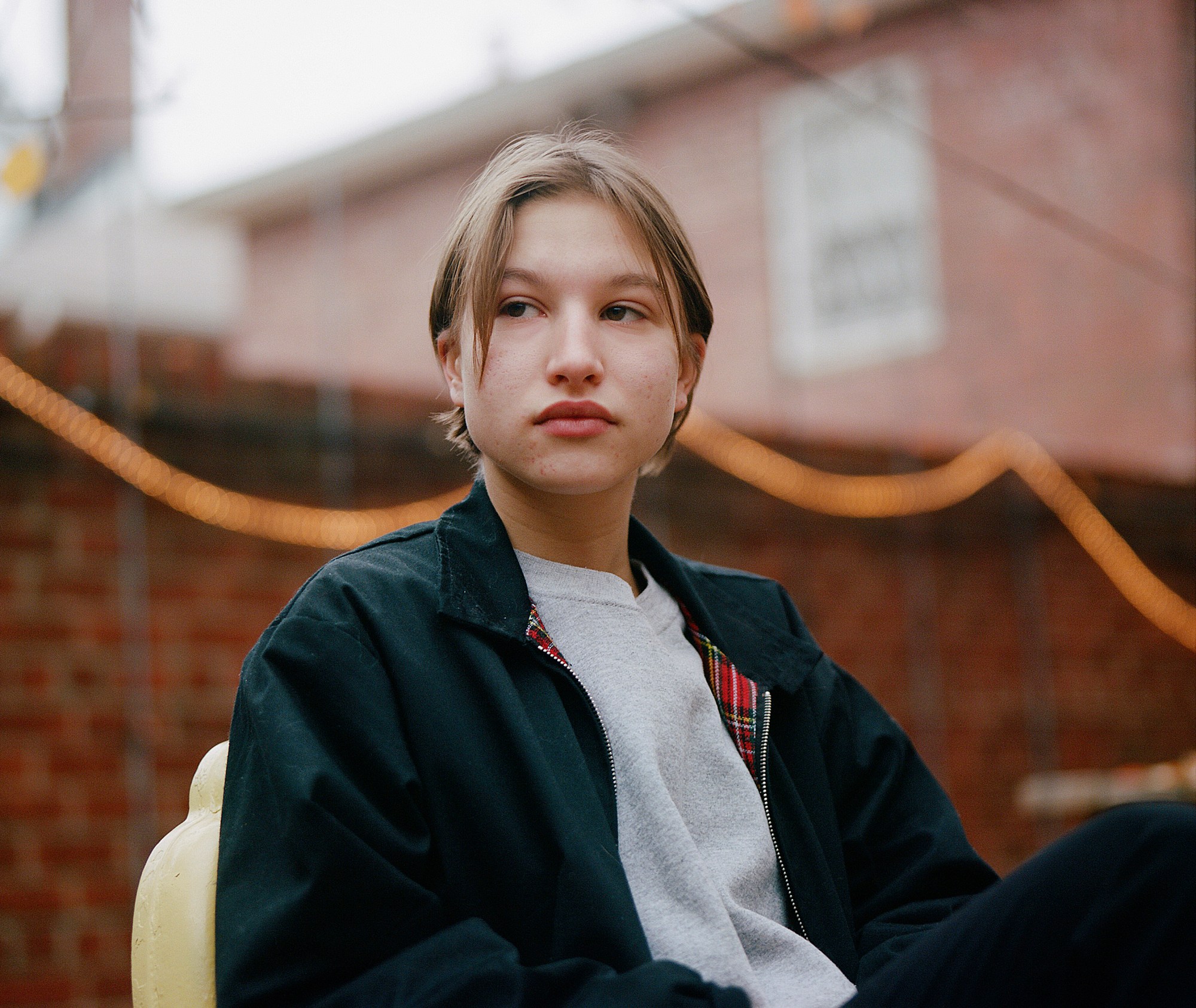
Name: Rosa Polin
Where are you from? Brooklyn
What do you do? I’m a photographer.
What does being Jewish mean to you in 2017?
Basically: fuck Trump, colonialism, and bigotry. I support freedom for Palestine and safety for all people across the world regardless of their heritage or religious or ethnic background.
How has being Jewish shaped your identity and how you see yourself?
I identify as a Brooklyn Jew and member of the Ashkenazi diaspora.
How do you feel being Jewish intersects with other aspects of your identity?
My Jewishness is an aspect of my family history which is partly why I exist here, today. Not Jewish enough for the real Jews, not not-Jewish enough for the gentiles, I exist in an in-between state that I’m sure lots of children with parents of mixed faith or different backgrounds can relate to. Straddling two worlds and not “fitting” entirely into either. But I should make it very clear that I have never been victimized or subjected to violence based on my Jewishness. I’m a white girl. That is, it seems, what matters in this place and time.
Who are your Jewish heroes?
Diane Arbus and Amy Winehouse.
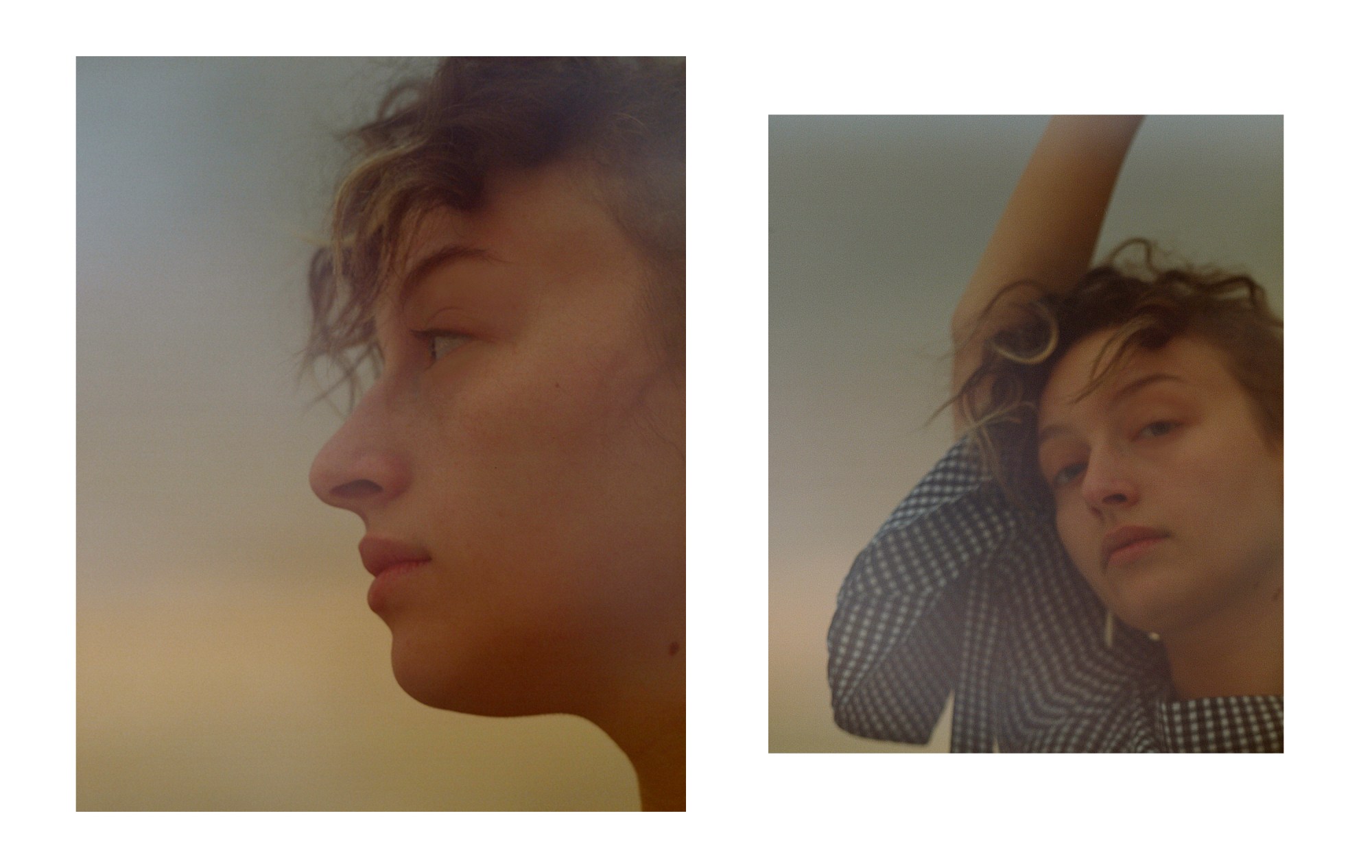
Name: Gal Amit
Where are you from? Kibbutz Ein HaMifratz, Israel
What do you do? Visual research at Vogue, and I model.
What does being Jewish mean to you in 2017?
Remembering my responsibility towards other minorities who are way more oppressed than we are nowadays.
How has being Jewish shaped your identity and how you see yourself?
I was raised in a secular kibbutz, but I started really practicing Judaism at 12. Keeping kosher, fasting, all of that. The balance of the two is a big part of my identity — in the way that my practice has become just very personal. I do it my way. It’s less about rules or restrictions, more of a spiritual freeform thing.
How do you feel being Jewish intersects with other aspects of your identity?
I’m a big homebody! Perhaps it’s the emphasis I learned on family, food, and comfort 🙂
Who are your Jewish heroes?
My grandma on the kibbutz! She’s the most iconic Moroccan Jew. And my mama. And Larry David, duh!
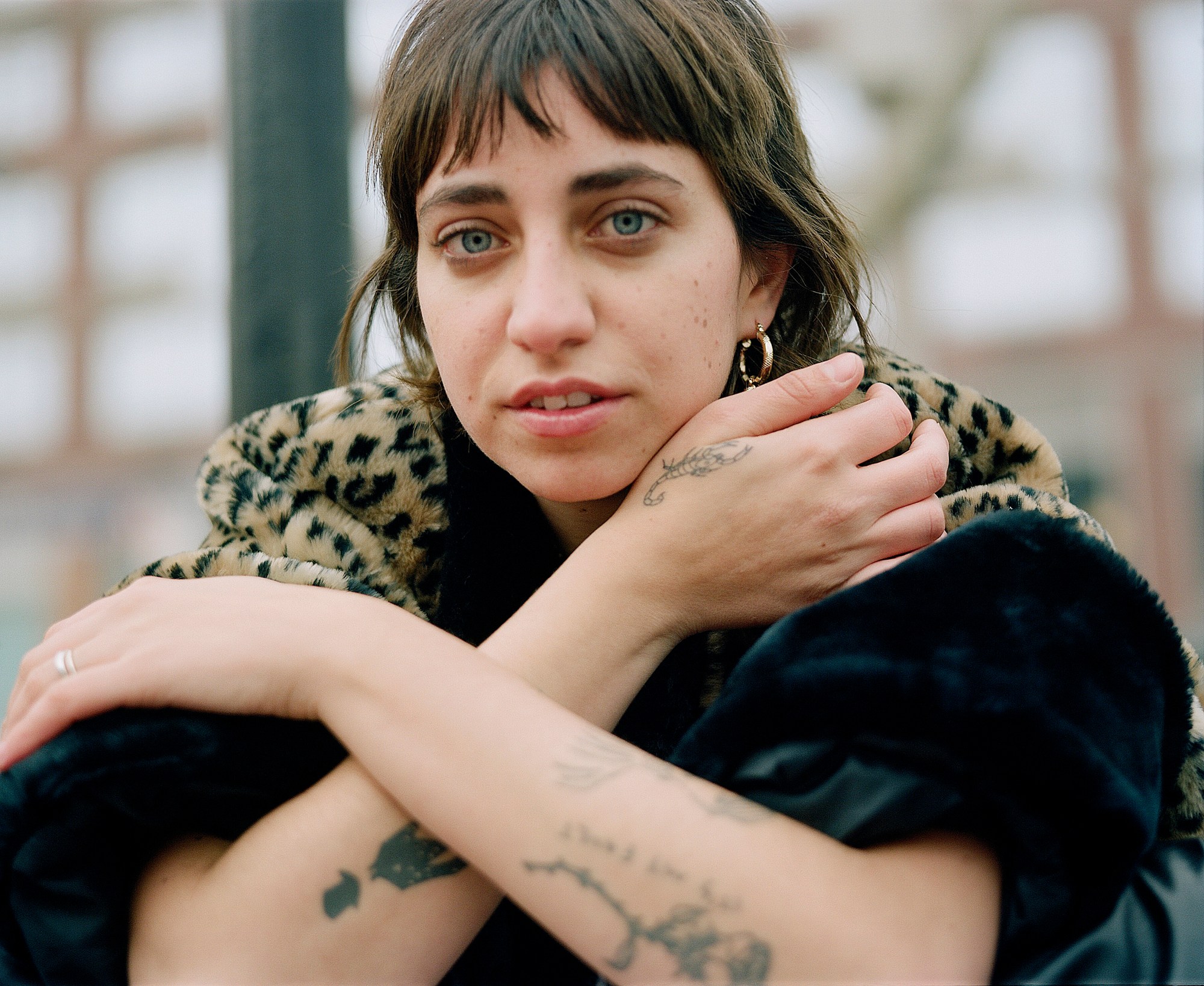
Name: Sarah Benjamin
Where are you from? Jerusalem
What do you do? Photography and casting.
What does being Jewish mean to you in 2017?
The history of my family: where we come from and how we got here.
How has being Jewish shaped your identity and how you see yourself?
Because of the rough history of the Jewish people, and my family specifically, I think I’m extremely sensitive to injustice and lack of fairness.
How do you feel being Jewish intersects with other aspects of your identity?
I grew up in a religious home and left the religion in my teens. My community back home is pretty strict and doesn’t always love how I dress, what I do for a living, or where I live. There’s a lot of criticism of people who leave the community back home. But I’m lucky to have an amazing and supportive mom who can see past the weird hair and tattoos.
Who are your Jewish heroes?
Leonard Cohen!
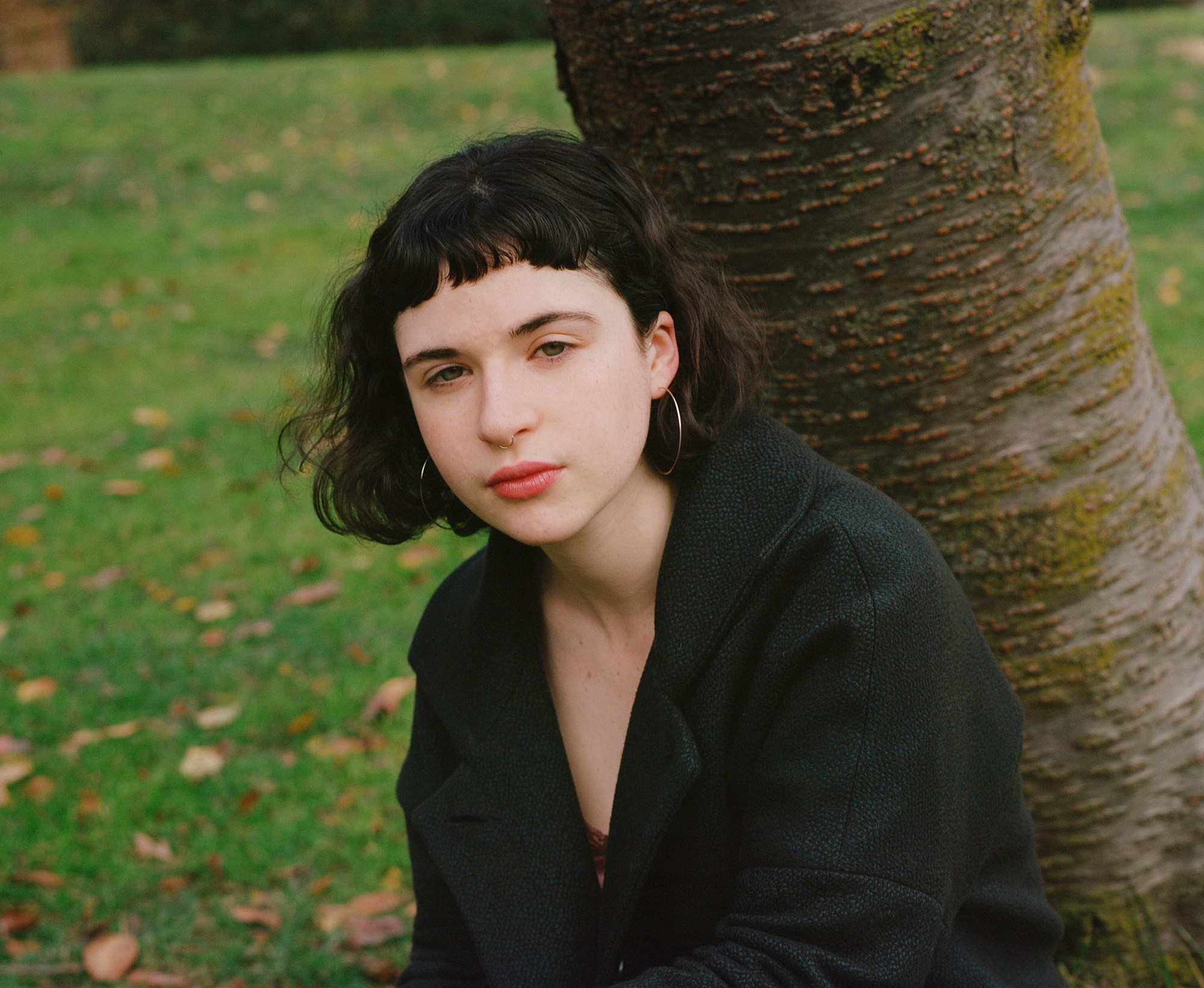
Name: Eliza Siegel
Where are you from? Woodstock, NY
What do you do? I’m a student at Barnard College. I also work at a library and write for my local paper, the Woodstock Times.
What does being Jewish mean to you in 2017?
It’s strange being Jewish in 2017. I often have to try and reconcile paradoxes within myself regarding privilege, fear, and the socio-political climate. As a white, straight, cisgendered person, I am incredibly privileged and do not have to face the types of institutional violence that so many others are burdened with on a daily basis. And yet, as neo-Nazis take to the streets and swastikas are scrawled on New York dorm room doors where Jewish students live, it is hard to feel completely at ease.
How has being Jewish shaped your identity and how you see yourself?
Woodstock has a pretty active Jewish community, and my grandmother is Orthodox, so Judaism was definitely a significant part of my life growing up.
How do you feel being Jewish intersects with other aspects of your identity?
Even though I don’t believe in God, there are certain aspects of Judaism I hold onto in a secular sense, things that are definitely integral to my identity. I like Judaism’s emphasis on living and doing good in the present, rather than looking to the afterlife for motivation or validation. I also think that Jewish mysticism is beautiful and represents a way of being spiritual without necessarily being religious.
Who are your Jewish heroes?
I am fortunate to have so many indomitable, powerful, and incredible Jewish women in my life. My grandmother, who’s in her mid-90s, besides being fiercely independent, is one of the most generous and selfless people I know. My mom is also one of my biggest heroes.
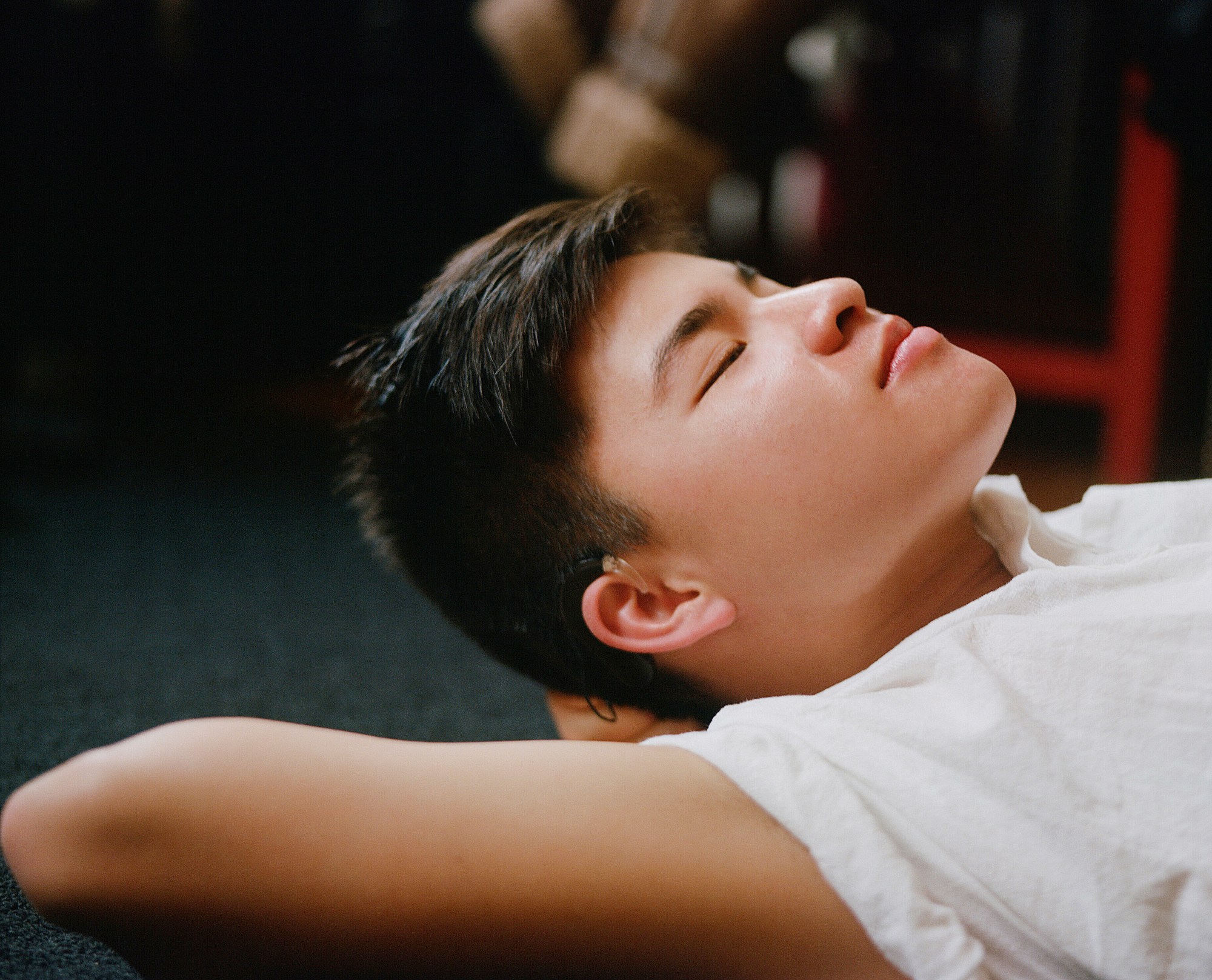
Name: Chella Man
Where are you from? A small town with a super narrow mind.
What do you do? I’m a computer science and virtual reality programming student. On the side, I am sharing my journey transitioning on testosterone. I also create art.
What does being Jewish mean to you in 2017?
Jewish people have faced immense loss throughout history. This loss reminds me to be as inclusive as possible.
How has being Jewish shaped your identity and how you see yourself?
Growing up, my temple’s rabbi was openly gay. Seeing our temple’s community accept a queer individual as a leader gave me hope at such a young age, although I had not come to terms with my sexuality yet. It made me feel included in a community as well as Jewish culture.
How do you feel being Jewish intersects with other aspects of your identity?
It has definitely made me open to understanding and respecting all other cultures. When people interact with others with different backgrounds, it often breaks down barriers and misperceptions. Growing up Jewish did that for me. I will be eternally grateful for that.
Who are your Jewish heroes?
My mom. Her empathy and open mindedness towards my struggles with gender/sexuality have always allowed me to feel safe with her and “at home” in our family.
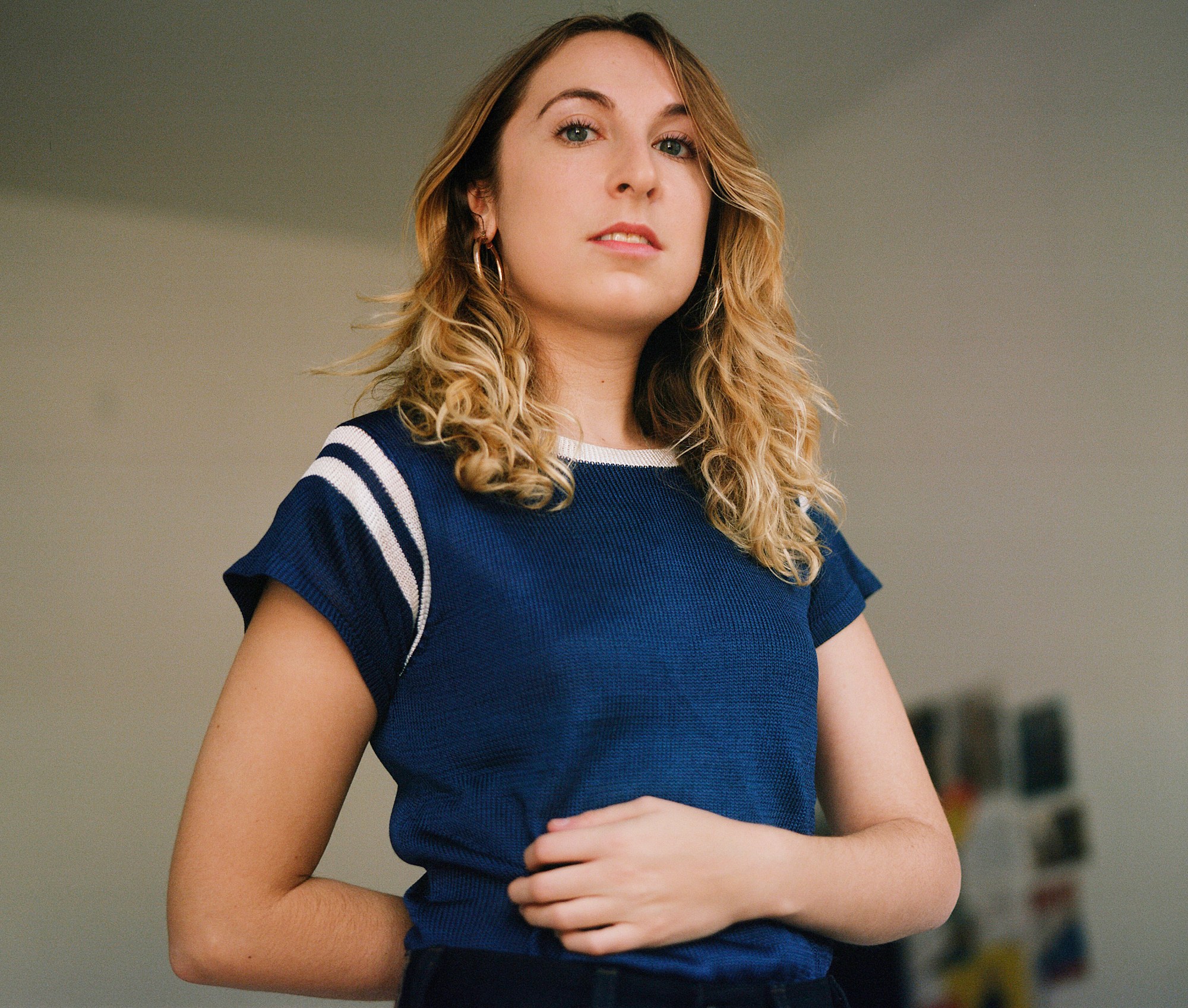
Name: Jacqueline Harriet
Where are you from? Sacramento
What do you do? I’m a photographer.
What does being Jewish mean to you in 2017?
As a child, being Jewish made me feel “other.” When I was five years old, the synagogue I belonged to was the target of arson. The sanctuary and library were completely destroyed in an act of anti-Semitism. Today, as an adult, it’s so fresh to live in a city (NYC) where Judaism is visible and celebrated as part of the culture. But I think being associated with any religion in 2017 also means taking stock of what that religion’s texts and values are, and trying to reconcile them with the modern world.
How has being Jewish shaped your identity and how you see yourself?
There were maybe four or five kids in my entire elementary school who identified as Jewish, so growing up in the suburbs of Sacramento it felt like a defining feature. The funny switch was that when I moved to NYC for college I felt the opposite — I didn’t feel Jewish enough. Even kids who weren’t Jewish but were raised in cities with large Jewish populations were often more educated about the religion than I was.
How do you feel being Jewish intersects with other aspects of your identity?
Overall, I feel very culturally Jewish. I relate to the values of peace, justice, love, and kindness. And physically I think I have some features that reflect my Jewish Lithuanian heritage.
Who are your Jewish heroes?
Nan Goldin and Barbra Streisand.
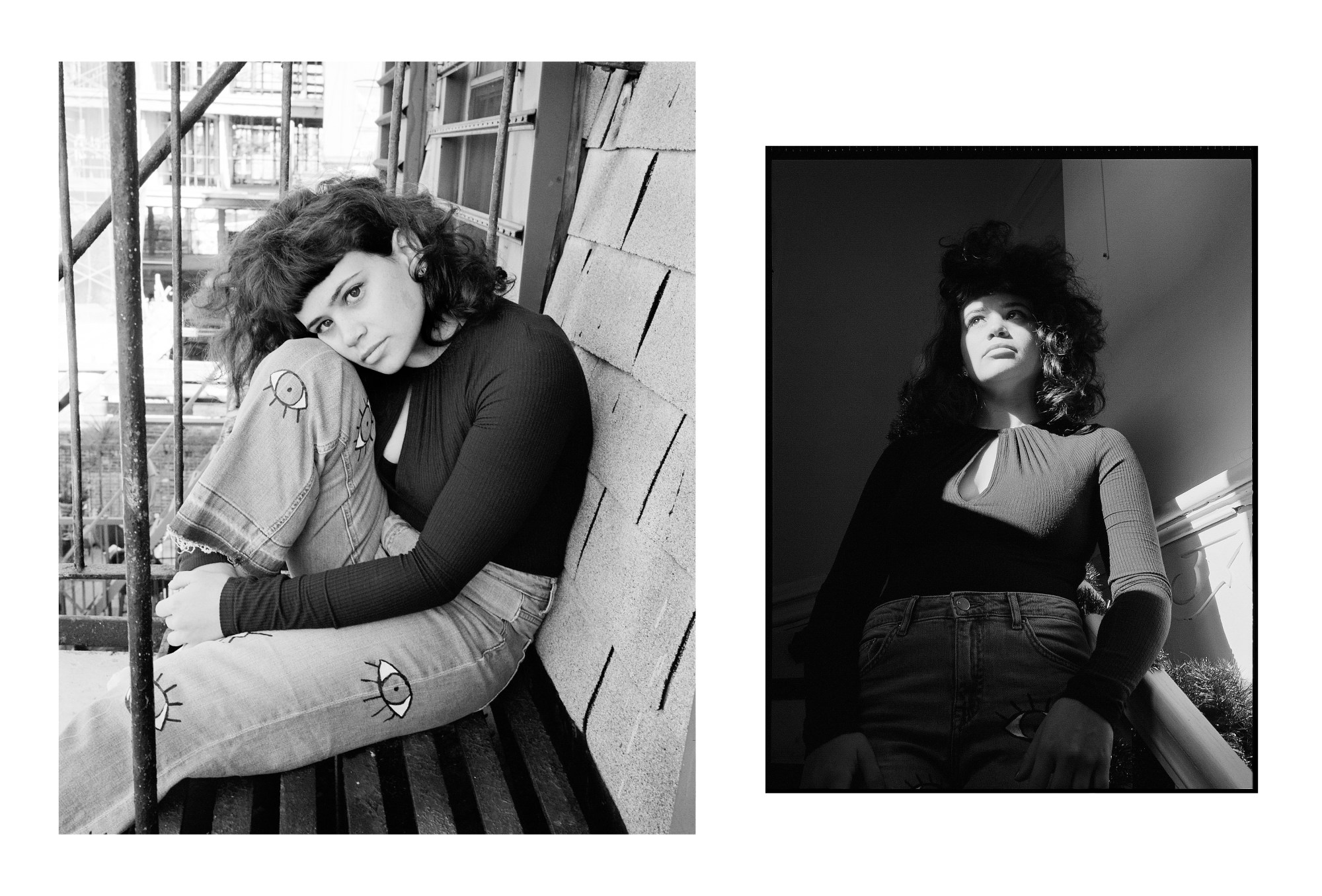
Name: Sandy Honig
Where are you from? Connecticut
What do you do? I’m a photographer and comedian.
What does being Jewish mean to you in 2017?
I’m not a very religious person, so to me being Jewish is more about carrying on my family’s traditions.
How has being Jewish shaped your identity and how you see yourself?
I think I easily fall into the stereotypes of a Jewish person in 2017. I am very good with money (I started a retirement fund at 21); I talk with passion and with my hands. But it also helps me love my sense of humor. Jews, in my experience at least, are a very fun people. I grew up in a home that was always having a blast.
How do you feel being Jewish intersects with other aspects of your identity?
It is the driving force of my identity. I don’t think about it a lot during the day, and most people don’t know I am Jewish because I don’t “look Jewish,” whatever that means, but I don’t compartmentalize my identity. I am Sandy first. I’m not a woman second, or a Jew second, but I am a Jewish woman.
Who are your Jewish heroes?
They’re probably all comedians. Sarah Silverman especially, whose humor is so infected with Judaism, but at the same time carries gravity. She uses her platform to speak passionately about politics, because she knows she can sway minds. And she writes the best jokes of anyone!
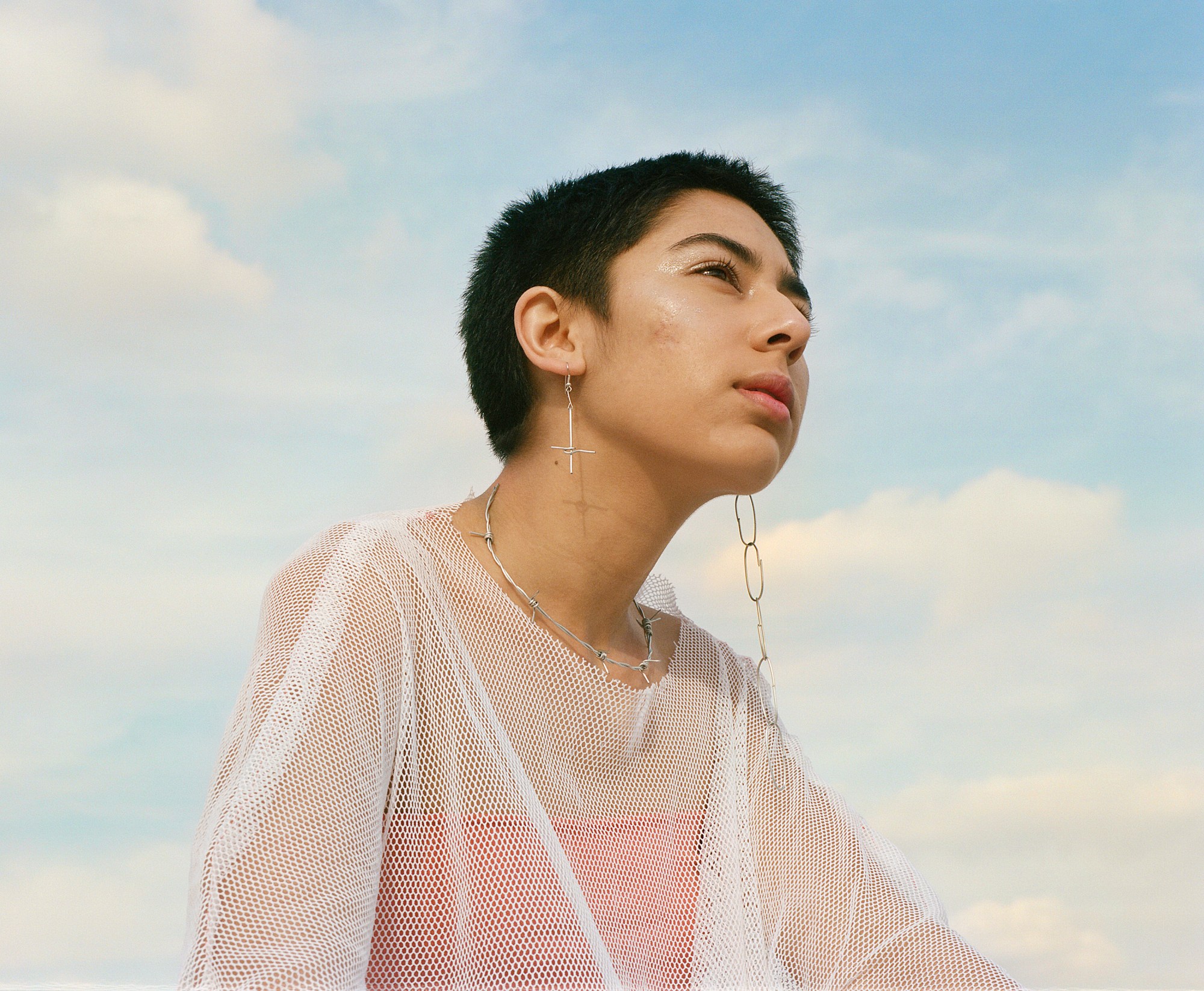
Name: Alyx Runyon
Where are you from? Los Angeles County
What do you do? I’m studying studio art, and I’m a practicing artist.
What does being Jewish mean to you in 2017?
Being connected to a long-standing community, one that has a beautiful and rich history and culture. It also resonates with this desire to resist oppressive systems.
How has being Jewish shaped your identity and how you see yourself?
I grew up surrounded by people who were not Jewish at private religious schools and it felt like a part of my identity that was ostracizing and uncomfortable. Accepting and recognizing my Jewish identity was a process that helped me in the journey towards accepting other parts of my identity that I was suppressing.
How do you feel being Jewish intersects with other aspects of your identity?
Being Jewish was so involved with the process of accepting my queer identity. Along this path of acceptance, opening my mind to more progressive viewpoints was the first step, then understanding intersectional identity and becoming an ally — and eventually fully embracing my Jewish roots and soon after coming out as queer and gender non-binary.
Who are your Jewish heroes?
Carrie Brownstein and Annie Leibovitz are two people whose personhood and journey really inspire me. Martine Rothblatt is also one of my Jewish heroes!
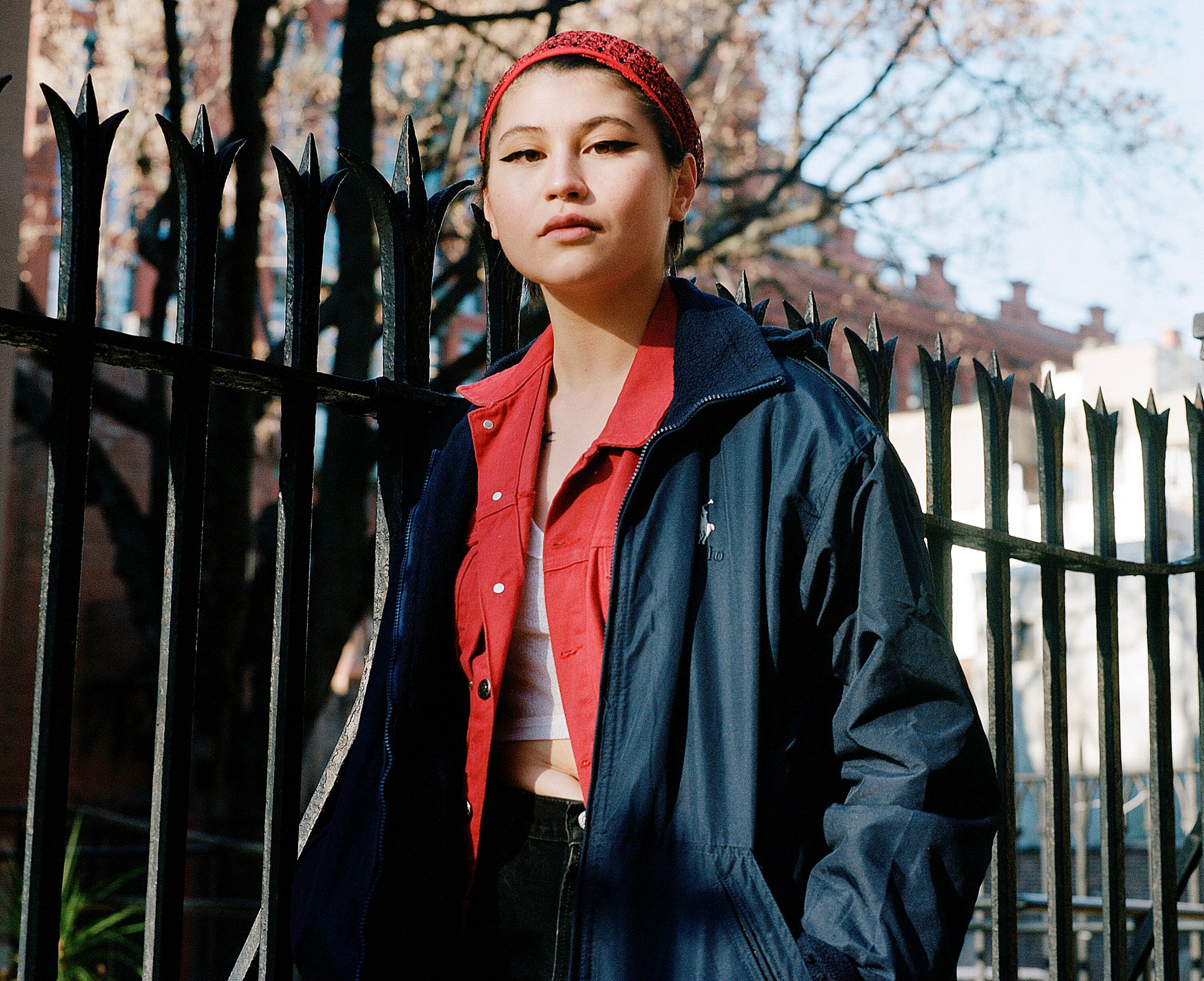
Name: Kayla Janowitz
Where are you from? Fort Lee, NJ
What do you do? Freelance modeling and acting. Sometimes I do tattoos if I can’t make rent.
What does being Jewish mean to you in 2017?
With all the shpiel going on in the world, I feel proud to be a little different. I am not religious and I can recite a wine prayer that I cannot translate, but I’m proud to be Jewish.
How has being Jewish shaped your identity and how you see yourself?
My father is a reformed Jew. He went to Hebrew school and had a Bar Mitzvah, but is covered in tattoos (making him not eligible to be buried in a Jewish cemetery). It’s actually really nice to see my parent branch out from the norm, encouraging me to do the same.
How do you feel being Jewish intersects with other aspects of your identity?
My mother was born and raised in China. She herself isn’t Jewish, making me, by the books, not Jewish. It’s annoying to have people tell you what you are! I am a Jewish Eurasian woman and that’s that.
Who are your Jewish heroes?
Adam Sandler, Sarah Silverman, Winona Ryder, Jack Black, my grandpa.
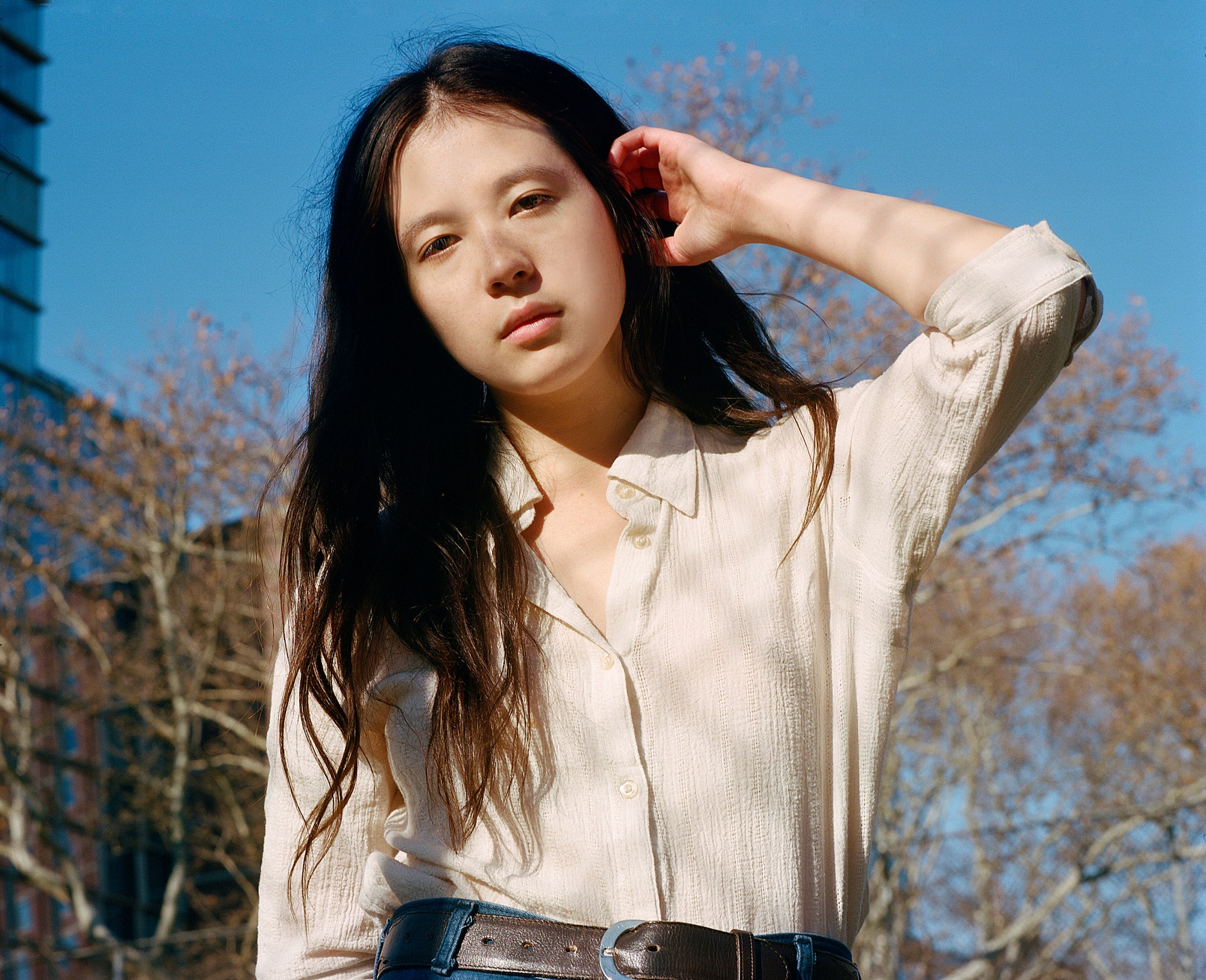
Name: Adinah Dancyger
Where are you from? NYC
What do you do? I’m a filmmaker.
What does being Jewish mean to you in 2017?
It’s complicated. My internal struggle has always been consistent to a degree. My family and I are “secular,” if I had to label it. I think it’s about keeping up with traditions of being a family more so than following the ideals of a religion.
How has being Jewish shaped your identity and how you see yourself?
It has shaped me greatly. Being Jewish is a part of my identity that I have yet to talk about as much as my Korean-American identity. I’m a first generation American and my father is Polish/Jewish and my mom is Korean and converted to Judiasm, so there are a lot of different things in the pot that have synthesized into a confusing blob. It’s a triple-plus consciousness with layers and conflicts, but I try just to accept an identity that changes constantly.
How do you feel being Jewish intersects with other aspects of your identity?
It is super complicated. In my childhood, I experienced a lot of internal shame for feeling “other” as Korean and Jewish, but as I got older and luckily surrounded myself with people who foster otherness and celebrate difference, I have felt I am growing into myself day by day. My family dinners consist of heavy starches, lox, bagels and Korean BBQ. I grew up learning Korean and the Torah. I feel a strong connection to both of my family histories. I have had the ability in social settings to choose which identity I am going to elaborate on, and that is something I don’t necessarily know how to feel good about. All together it’s frustrating, fun, and a continuing learning experience.
Who are your Jewish heroes?
My grandparents, dad, mom, and Natalie Portman.

Name: Anya Schulman
Where are you from? Buffalo, NY
What do you do? I’m on the social media team at Marc Jacobs.
What does being Jewish mean to you in 2017?
Being Jewish in 2017 means creating space within the Jewish community for those who have been excluded in the past. It means using my personal and cultural history as a cornerstone for my own perspective. And Yiddish slang. I want to keep kvelling alive.
How has being Jewish shaped your identity and how you see yourself?
I think there is a feeling of separation most Jews experience depending on where they grow up — having traditions that varied from most of my peers’ and learning about the Jewish history of persecution from a young age reinforced this. My family and Jewish community in Buffalo focused on building pride and resilience in response to this experience, which were transferable skills I used in figuring out my queer identity.
How do you feel being Jewish intersects with other aspects of your identity?
There’s a similar camaraderie in being Jewish as there is in being queer. Most queer or Jewish individuals have faced identity crises or discrimination in ways big and small. There’s comfort in being around people who have shared your experience. I’m often complimented for not looking Jewish and not looking queer, both of which are, frankly, fucked up. I like throwing people for a loop by telling them that I am both queer and Jewish, and I hope that “passing” as straight and not Jewish won’t be a compliment soon. I lead a privileged life in many, many ways, but being femme, queer, and Jewish means that accomplishing everything I want to is a radical act in and of itself.
Who are your Jewish heroes?
Judith Butler, Iris Apfel, Susan Sontag, Ilana Glazer, the activist Adam Eli, my family.
